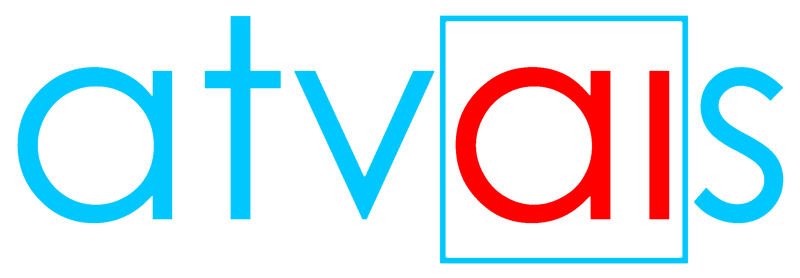The Consumer Electronics Show (CES) 2024, held in Las Vegas, once again set the stage for revealing the latest advancements in technology. Among various innovations, Artificial Intelligence (AI) stood out as a persistent theme, showcasing its ever-increasing integration into our daily gadgets and systems. This article aims to delve deeper into the innovations presented at CES 2024, with a specific lens on AI ethics in tech. As we explore the cutting-edge technologies, it’s crucial to question their impact not just on efficiency and convenience but also on the ethical and governance frameworks that guide their application.
AI: Ubiquity and Ethical Considerations
The prevalence of AI across various products at CES 2024 was unmistakable. From Microsoft’s AI Copilot to Volkswagen‘s integration of ChatGPT, AI’s dominance in the show highlighted the rapid pace of technological integration into our lives. However, this integration brings forth significant ethical implications.
Privacy Concerns with AI-Enhanced Devices
The growing use of AI in everyday devices raises critical privacy concerns. For instance, AI-powered home assistants and smart devices constantly collect and process data, posing a risk to user privacy. The question remains: How can we ensure that this data is used responsibly and securely?
Bias and Accountability in AI Algorithms
Another ethical issue is the potential for bias in AI algorithms. Bias in AI can lead to unfair or discriminatory outcomes, especially in critical areas like healthcare or law enforcement. Therefore, it’s essential to address how AI developers are mitigating bias and ensuring accountability in their algorithms.
Transparency in AI Operations
Transparency in AI operations is crucial for trust and understanding. Users need to know how AI systems make decisions, especially in high-stakes scenarios. This transparency is not just a technical challenge but also an ethical imperative.
Regulatory Frameworks and Standards for AI
The role of governance in ensuring ethical AI deployment cannot be overstated. There is a pressing need for robust regulatory frameworks and standards that guide AI development and usage, ensuring they align with ethical principles. This includes global cooperation to establish norms and guidelines for AI ethics.
Corporate Responsibility and Ethical AI Development
Finally, corporate responsibility plays a vital role in ethical AI development. Companies need to adopt ethical guidelines and practices in their AI development processes. This commitment must go beyond mere compliance, embedding ethical considerations into the very fabric of organizational culture.
In conclusion, as we marvel at the technological innovations showcased at CES 2024, we must also engage in a critical dialogue about their ethical implications. The path forward requires a collaborative effort between technologists, ethicists, policymakers, and the public to ensure that AI development is not only innovative but also responsible and aligned with societal values.
Innovative Screen Technologies and Privacy Concerns
The advancements in screen technology at CES 2024 were both impressive and thought-provoking. Companies like Hisense and TCL showcased brighter and larger TVs, pushing the boundaries of visual experience. Furthermore, LG and Samsung introduced transparent screens, merging aesthetics with advanced functionality.
Privacy Implications of Advanced Screens
With these advancements come significant privacy concerns. The potential for increased surveillance through such devices poses a critical question: How do we balance innovative display technology with the need to protect individual privacy? As these screens become more interactive and capable of collecting data, the risk of personal information being misused or mishandled increases.
Governance Measures for Protecting Privacy in Screen Tech
Governance in this area is crucial. There is a need for stringent regulations and standards to ensure that these advanced screen technologies are developed and used in ways that respect user privacy. This includes guidelines on data collection, usage, and sharing, as well as ensuring transparency in how these technologies operate.
Gaming Advancements and Ethical Gaming AI
The gaming sector at CES 2024 also witnessed significant advancements. New gaming technologies, particularly those involving AI, were on full display. Companies like Intel showcased 14th-gen chips in gaming laptops, enhancing gaming performance.
Ethical Considerations in Gaming AI
The incorporation of AI in gaming raises ethical concerns. It’s crucial to consider the impact of AI on player behavior and psychology. Issues like addiction and the manipulation of player choices through AI algorithms need to be addressed. Additionally, fairness and transparency in AI-driven gaming experiences are paramount, ensuring that players are treated equitably and understand the role of AI in their gaming experience.
Governance in Ensuring Ethical Gaming Practices
The role of governance in ensuring ethical gaming practices cannot be overlooked. This involves establishing guidelines and standards for AI use in gaming, ensuring that gaming companies adhere to ethical practices in AI deployment. It’s about creating a gaming environment that is not only technologically advanced but also ethically responsible.
In the next part of the article, we will explore the theme of energy tech, focusing on its sustainability and ethical implications.
Energy Tech: Sustainability and Ethical Implications
CES 2024 marked a significant shift in the technology sector with a strong emphasis on sustainable energy technologies. Innovations such as EcoFlow‘s portable whole-home backup battery and new solar technologies capable of generating electricity like stained glass represent a leap toward green solutions. However, these advancements also bring ethical considerations to the forefront.
Ethical Considerations in Energy Tech
The ethical implications of these technologies center around their environmental impact and resource utilization. It is essential to question whether these technologies contribute to a sustainable future or if they perpetuate existing environmental challenges. Additionally, issues of accessibility and inequality in technology adoption must be addressed, ensuring that sustainable solutions are available to all segments of society, not just the privileged few.
Role of Governance in Promoting Sustainable and Equitable Energy Solutions
Governance plays a crucial role in steering the energy tech sector towards sustainability and equity. This involves implementing policies that encourage the development of environmentally friendly technologies and ensuring that these technologies are accessible and affordable. Regulations should also aim to incentivize companies to adopt sustainable practices and to hold them accountable for their environmental impact.
AI Ethics in Tech
As we reflect on the myriad of technological innovations showcased at CES 2024, the importance of AI ethics and governance becomes increasingly evident. In a world where technology is rapidly evolving, it’s crucial to maintain a focus on the ethical implications and governance requirements of these advancements.
The dialogue and action surrounding these issues must be a collaborative effort involving tech developers, policymakers, and the public. Only through a concerted effort can we ensure that the development and deployment of technology are not only innovative and efficient but also responsible and aligned with societal values.
The potential for technology to drive positive change is immense, especially when coupled with ethical considerations and effective governance. As we look forward to future technological advancements, let’s strive to create a landscape where innovation thrives alongside ethical responsibility and societal well-being.






